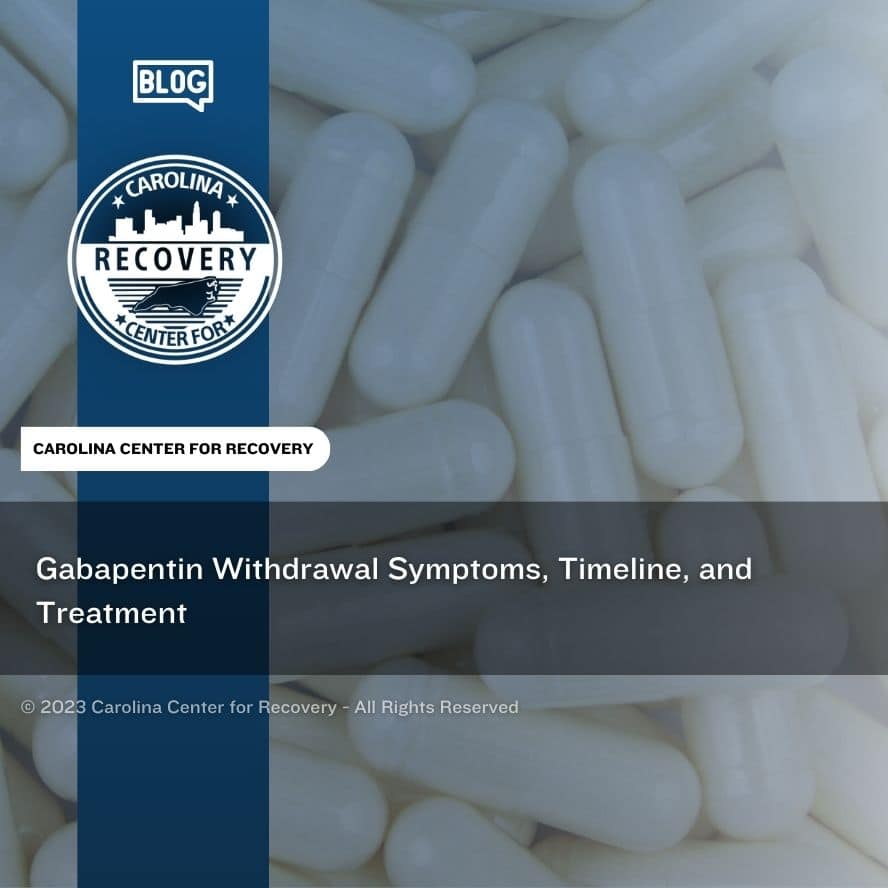Gabapentin Withdrawal Symptoms, Timeline, and Treatment

Medically Verified: 2/1/24
Medical Reviewer
Chief Editor

All of the information on this page has been reviewed and verified by a certified addiction professional.
Many people believe that all prescription medications are safe to use in any situation. However, many prescription drugs pose a risk for misuse and addiction. People may become addicted to prescription drugs and face a range of serious, sometimes life-threatening, consequences.
Gabapentin is a prescription drug used to treat seizure disorders, neuropathic pain, and other conditions. People who take gabapentin for a long time may become physically dependent on it. People who develop gabapentin addiction may require professional detox treatment to stop taking this drug safely.
This article will explore gabapentin withdrawal, including symptoms and treatment at each stage of the withdrawal timeline. You will also learn how to find detox treatment for gabapentin addiction.
Contact the Carolina Center for Recovery to learn more about treating gabapentin addiction. Our effective, holistic treatment programs can help you understand and overcome your addiction so that you can work toward a healthier, sober future.
What is Gabapentin?
Gabapentin is a prescription medication sold under the brand name Neurontin. It is available in several forms, including:
- Tablets
- Capsules
- Oral solutions
People may take it to treat several conditions, including:
- Restless leg syndrome
- Epileptic seizures
- Postherpetic neuralgia (pain occurring after a shingles outbreak)
Medical experts do not fully understand how gabapentin works. However, many medical professionals believe that gabapentin reduces activity and signals in the brain. This may lead to less perception of pain and reduced seizure activity.
Gabapentin Abuse: Understanding the Risks
People who take gabapentin may experience reduced anxiety levels. Some people may like the way they feel while using gabapentin and want to take it differently than prescribed. People who misuse gabapentin may experience a “high” feeling, especially when taking a high dose.
Gabapentin misuse can cause a range of unwanted side effects, including:
- Excessive drowsiness
- Tremors
- Weakness
- Vision problems
- Dry mouth
- Constipation
- Headache
- Anxiety
- Unsteadiness
- Nausea and vomiting
- Increased appetite and weight gain
- Memory problems
- Joint and back pain
- Ear pain
- Red or itchy eyes
- Fever
- Uncontrolled eye movements
Long-term gabapentin abuse can lead to life-threatening health complications, including:
- Liver damage
- Heart problems
- Kidney damage
People who abuse gabapentin are also at risk of a lethal overdose. It is essential to recognize gabapentin abuse and seek treatment as quickly as possible.
Gabapentin Withdrawal Symptoms
People who become addicted and then suddenly stop taking gabapentin may experience withdrawal symptoms.
Symptoms of gabapentin withdrawal may begin within 12 hours of your last dose. Symptoms may include:
- Agitation
- Sweating
- Digestive system symptoms
- Elevated heart rate
- Tremors
- High blood pressure
- Insomnia
People may be more likely to experience withdrawal symptoms after taking higher doses of gabapentin than prescribed.
Those who use gabapentin and other substances are more likely to struggle with withdrawal symptoms than those who only misuse gabapentin.
Treatment At Each Stage of the Gabapentin Withdrawal Timeline
Your experience of withdrawal from gabapentin depends on many factors, including:
- How long you have been using gabapentin
- Other substances you have used
- Your general health
- Co-occurring mental health conditions
Generally, people who experience withdrawal symptoms after stopping gabapentin follow a typical timeline. Here is what to expect during each stage of the gabapentin withdrawal timeline.
12-48 hours
If you stop taking gabapentin suddenly, you may begin to experience withdrawal symptoms as soon as 12 hours after your final dose. However, some people do not experience symptoms for up to a week after their last dose.
People typically experience symptoms between 24 and 48 hours after their last dose of gabapentin.
Symptoms during the first stage of withdrawal include:
- Agitation
- Sweating
- Anxiety
- High blood pressure
- Insomnia
These symptoms may make you very uncomfortable. It is important to have care in a treatment center to manage your symptoms and avoid relapse.
During treatment, medical and mental health professionals will provide support and care to help you manage withdrawal. In some cases, doctors choose to taper a patient’s dose slowly to help them avoid withdrawal symptoms.
72 hours
Your withdrawal symptoms may peak sometime around the third day of withdrawal. Your symptoms may intensify. Insomnia, anxiety, and other symptoms may make you feel miserable.
It’s essential to continue treatment for substance use disorder until your symptoms have resolved. Treatment in a medical detox program may include:
- Medications to manage withdrawal symptoms, including anxiety and insomnia
- Holistic therapies like massage, mindfulness, and nutrition support to provide calm and comfort
- Emotional support, including individual and group therapy
- A safe, secure environment
- 24/7 access to medical and mental health care
People who misuse gabapentin may require additional substance abuse treatment. During treatment, people follow individualized rehab plans to address the physical, emotional, and behavioral aspects of their substance use.
Find Help Now
If you or someone you love struggles with gabapentin abuse or addiction, you are not alone. Contact the Carolina Center for Recovery team now to learn about your treatment options.

